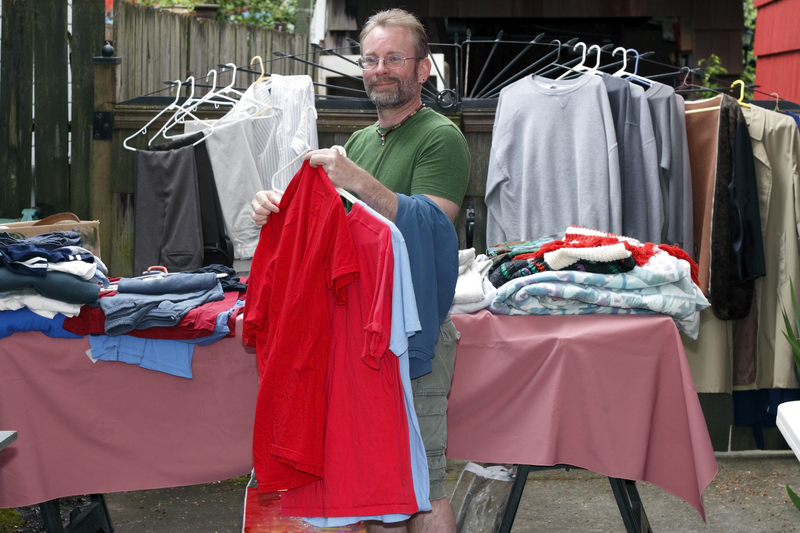Where to Recycle and Dispose of Pots and Pans Locally
Are your old pots and pans piling up in the kitchen? Wondering how best to recycle or responsibly dispose of these kitchen essentials? Recycling or properly disposing of pots and pans locally can help reduce waste and protect the environment. This comprehensive guide will walk you through the best practices, local options, and creative solutions for pots and pans that have served their time.

Why Proper Disposal of Pots and Pans Matters
Many people don't realize that simply tossing old cookware into the trash can contribute to landfills and environmental pollution. Most pots and pans are made from metals like aluminum, stainless steel, or cast iron--materials that can often be
- Reduces landfill waste: Metals can take hundreds of years to rust away.
- Conserves resources: Recycling metals saves energy and raw materials.
- Supports the circular economy: Reused metals go into new products.
Can You Recycle Pots and Pans?
Yes, you can recycle most pots and pans, but there are some things you should know first. Not every local recycling center will accept cookware due to varied materials and coatings, such as Teflon. Understanding the components of your pans and your area's facility requirements is the first step.
What Types of Pots and Pans Can Be Recycled?
- Stainless steel pans
- Cast iron skillets
- Aluminum saucepans (without plastic handles or non-stick coatings)
- Copper pots
*Note: Some non-stick or ceramic-coated pans can't be recycled in curbside bins due to their coatings. It's essential to
Local Options for Recycling Pots and Pans
Recycling and disposing of pots and pans locally is easier than you might think. There are several avenues you can explore right in your own community.
1. Local Scrap Metal Recyclers
Nearly every community has scrap metal facilities that accept household metals. Most pans and pots are made primarily of metal--making them perfect candidates for scrap yards.
- Remove any non-metal parts, such as plastic handles, before taking your items in.
- Check if your scrap recycler accepts pans with non-stick coatings.
- Call ahead for drop-off hours and specific requirements.
2. Municipal Curbside Recycling Programs
Some municipalities allow metal cookware in their scrap metal pickup or bulk item collection days. Look up your city's recycling guide or call for details about:
- Accepted materials and sizes
- Preparation instructions (remove food, plastic, etc.)
- Collection dates and locations
Pro tip: Do a quick search for "how to recycle pots and pans in [Your City]" to get up-to-date, local-specific information.
3. Household Hazardous Waste (HHW) Centers
Some non-stick cookware (especially older Teflon) should possibly be taken to an HHW facility, as certain coatings can contain chemicals classified as hazardous. Contact your local HHW drop-off centers to see if they accept cookware.
4. Appliance and Metal Recycling Events
Many communities hold periodic clean-up or recycling events for appliances and scrap metal. Check your city's website for upcoming events or community clean-up days.
5. Donation and Reuse Opportunities
If your pots and pans are still usable (even if a little worn),
- Local thrift stores, such as Goodwill or Salvation Army--call ahead to confirm acceptance.
- Food banks--some community kitchens or shelters gratefully accept lightly used cookware.
- Community centers or schools--for kitchen programs or art projects.
- Online communities--try Facebook Marketplace, Craigslist, or Freecycle to give away usable pans.
Creative Disposal: Upcycle or Repurpose Old Cookware
Still looking for ways to dispose of pots and pans locally? Why not get creative? Old cookware can find new life at home or in the garden!
- Planters: Drill a few drainage holes and use large saucepans for potted herbs or flowers.
- Bakeware birdbaths: Position upsidedown pans or baking dishes on stumps for a whimsical birdbath.
- Storage solutions: Use deep pots for storing tools, craft supplies, or as rustic decor.
- Wall art or clocks: Turn interesting pans into statement pieces!
What NOT to Do: Common Disposal Mistakes
- Don't put non-stick pans in curbside bins if your recycling program doesn't accept them.
- Don't burn or attempt to scrape harsh coatings yourself--some coatings can release toxins.
- Don't leave pots or pans in public spaces or dump sites--this is illegal littering.
Proper recycling and disposal ensures both environmental safety and compliance with local laws.
FAQs About Pots and Pans Disposal and Recycling
Are old pots and pans considered scrap metal?
Can you recycle non-stick cookware?
It depends. Most curbside programs do not accept non-stick or Teflon-coated pans due to the chemicals in their coatings. Check with your local scrap yard or hazardous waste facility to see if they accept them. For newer, ceramic-based non-stick pans, policies may vary.
Should I donate my old pans?
If the pan still works and isn't heavily scratched or dangerous,
How do I prepare cookware for recycling or donation?
- Wash thoroughly and remove all food residue.
- Unscrew and remove plastic or wooden handles if required by your recycler.
- Check for, and remove, stickers or labels.
- For donation, be honest about the condition--cracked, heavily worn non-stick surfaces are best recycled, not donated.
What about glass or ceramic cookware?
Pyrex and similar cookware cannot usually be recycled with glass bottles and jars. Check if your municipal facility has a special bin for heat-resistant glass, or consider reuse projects such as garden stepping stones or kitchen organizers.
How to Find Where to Recycle Pots and Pans in Your Area
With so many local options, it's helpful to use online tools to discover the closest and most responsible method. Here's how:
- Earth911 Recycling Search: earth911.com allows you to enter your ZIP code and the item ("pots and pans" or "scrap metal") to find local drop-offs.
- RecyclingCenters.org: Find community recycling centers by location and material.
- City government websites: Many municipal sites have updated lists of what is accepted and where.
- Call your waste hauler: They can advise directly on large-item pickups or special recycling instructions.
Step-by-Step: Disposing of Pots and Pans Locally
- Assess Condition: If the cookware is still usable, try to donate or sell it before recycling.
- Prepare Cookware: Clean thoroughly and remove non-metal parts if required.
- Research Local Guidelines: Use the above tools to find options in your zip code.
- Choose Drop-off or Pickup: Visit a local recycler, scrap metal yard, or schedule a pickup if available.
- Consider Upcycling: If local recycling is unavailable, repurpose items for storage or garden use.

Conclusion: Choosing the Best Local Option to Dispose of Pots and Pans
To sum up, you should:
- Donate usable cookware to local charities, shelters, or thrift shops.
- Recycle metal cookware at scrap yards or selected municipal programs.
- Handle non-stick and glass items according to local hazardous waste or recycling guidelines.
- Upcycle for creative household or garden use.
By choosing local recycling and responsible disposal of your old pots and pans, you make a positive environmental impact, keep valuable materials out of landfills, and even help someone in need.
Share Your Experience!
Have you found innovative local solutions to dispose of your old pots and pans? Do you know a great community program or upcycling idea we missed in this guide? Share your tips, photos, or questions in the comments section below!
